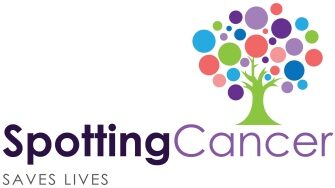How To Increase Your Cancer Survival Probability?
Advancements made in the field of cancer treatment over the last few decades have been enormous and truly life-saving. But despite the advances, detecting cancer before it spreads and treating it before it’s too late is still the best method to beat cancer.
As we are well aware, cancer is one of the leading causes of death in the US. According to the 2021 Cancer Facts & Figures from the American Cancer Society, it’s estimated that there will be 1.9 million new cancer cases diagnosed and 608,570 cancer deaths in the United States alone. Treatments are available, but so far, no approved cancer treatment shows a 100% success rate.
According to the World Health Organization, cancer treatments are often more effective when they are administered earlier in the course of the disease. Of course, survival probabilities vary depending on the type of cancer. But generally speaking, when caught early, almost all cancers are treatable. Cancer grows 24/7. This is why you should make it a habit to take active involvement in catching its tell-tale symptoms. That said, your habit of performing regular, thorough, and effective self-assessments for cancer is one that will require patience and practice.
Download Our Spot and Survive Guides Free Now!
Learn the signs to potentially save yours and your family’s life.
Simple steps to early cancer detection.
- First – familiarize yourself with the signs and symptoms of cancer, common cancer signs, and symptoms, from changes in your toenail color to noticeable signs like weight loss or bruising.
- Next, check your body for abnormalities. The best and easiest way for you to look out for cancer is to monitor your body. If you know how to do it properly, have the resources at hand, and are aware of what to look for, it should take no more than 10 minutes – and these 10 minutes could save your life.
- Then, once you know the signs & symptoms of cancer and how to monitor your body, reach out to your relatives to learn about whether cancer runs in your family and what type of cancer you might be at risk for. Charting your family history can help you uncover new insights into not just cancer, but other diseases that may run in your family.
- Screening saves lives and increases your chances of survival by finding cancer early when it is easier to treat. The American Cancer Society lists Cancer Screening Guidelines by Age starting 21 years old and older. However, if your family history or lifestyle puts you at higher risk for cancer then it’s even more important for you to come in for routine screening. Your doctor will recommend a frequency schedule for you based on your risk factors and family history.
- Have a team of doctors to assist you in managing your well-being.
SpottingCancer.Org provides a free five-step program including methods, tools, and means for routinely monitoring your body and timely treatment. The resources you can find on the Spotting Cancer website can help you learn to identify potential cancer in the early stages so you can stop cancer in its tracks.
In addition, Spotting Cancer Corporation has also formed The Cancer Detection Squad – a movement that advocates reducing cancer deaths through early detection habits.
It’s FREE to join and the benefits are enormous:
- Membership equips you with the knowledge and methods to make monitoring your body a vital part of your health and wellness routine.
- Action items are delivered directly to your inbox to jump-start a cancer detection lifestyle.
- You get interactive and downloadable resources such as printable guides, checklists, baseline and monitoring charts, screening schedules, and more to support a spot and survive habit in your family.
- Receive updates and reminders
Conclusion
Cancers are not entirely preventable. However, 93% of most cancers are curable. Monitoring your body, knowing your family history, and getting screened are all effective ways to increase your chances of surviving cancer, by early detection and timely treatment. Keep in mind when you develop routine early detection habits you increase your odds for survival should you be stricken with cancer.
To learn more about Spotting Cancer’s 5 Simple Steps for early cancer detection, hop over to the Spotting Cancer homepage, or better yet, join the Cancer Detection Squad today!
This information is intended as general information only. It was not written or intended as a substitute for medical advice. Please seek professional advice from your physician before taking any action that could affect your health.

